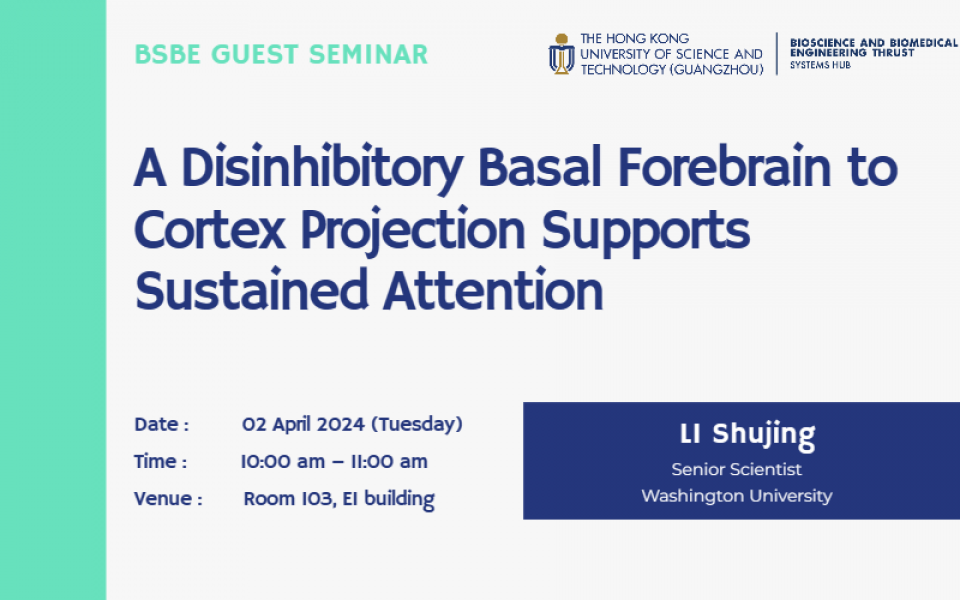A Disinhibitory Basal Forebrain to Cortex Projection Supports Sustained Attention
Abstract:
Sustained attention is essential for survival and critical for navigating life. However, sustaining attention over time requires effort and is vulnerable to periodic lapses that manifest as fluctuations in performance. Lapses of attention disrupt cognition in a variety of disorders such as attention deficit hyperactivity disorder (ADHD), schizophrenia, and Alzheimer’s disease. Yet the specific neural circuits underlying sustained attention are still unclear. The basal forebrain (BF) is largely known for its cholinergic population implicated in cognitive disorders. But recent evidence challenges the proposed dominant role of its signature cholinergic neurons in tracking attention fluctuation. By combining quantitative behavior, neural circuits, and computational approaches, we demonstrate that the circuitry and function of another major output population in the basal forebrain — parvalbumin-expressing (BF-PV) inhibitory neurons exhibit key properties supporting sustained attention. Their neural activity predicts and enhances attentional behavioral performance. Their responses reflect the computation of motivational salience-guided attention allocation. On the circuit level, BF-PV neurons send topographic projections to the cortex and modulate cortical gain through disinhibition. Together, these findings reveal a disinhibitory BF-to-cortex projection that regulates cortical gain based on a motivational salience computation, thereby promoting sustained attention. This study will provide fundamental insights into the basal forebrain’s contributions to normal cognition and illuminate new circuit targets for treating attention-related disorders.
Biography:
Shujing Li is currently a senior scientist in the laboratory of Dr. Adam Kepecs from Washington University in St. Louis, working on the neural basis of reinforcement learning and sustained attention. She received her Ph.D. from Fudan University Shanghai Medical College under the supervision of Dr. Ping Xu, where she studied how environmental insults alter gene expression profiles and change neural circuits in the brain. Following this, she pursued postdoctoral training at the Institute of Neuroscience, Chinese Academy of Sciences, mentored by Dr. Xiang Yu, where her research focused on the role of early sensory experience during critical developmental periods in promoting the maturation of neural circuits in sensory cortices. Her previous studies have been published on top journals including Neuron, Nature Neuroscience. Her future research interest is to elucidate the neural circuit mechanisms that mediate the attention deficit caused by early environmental inputs during development.
